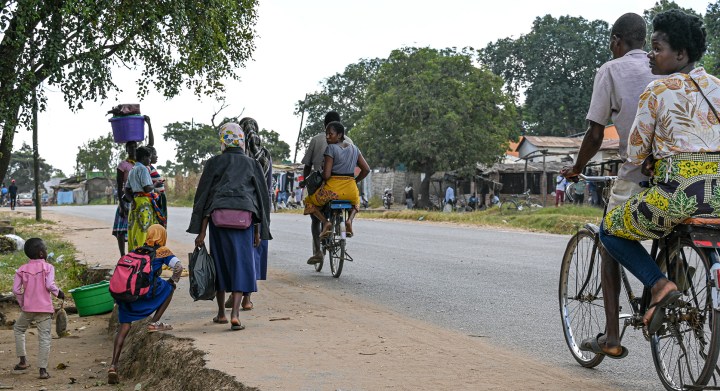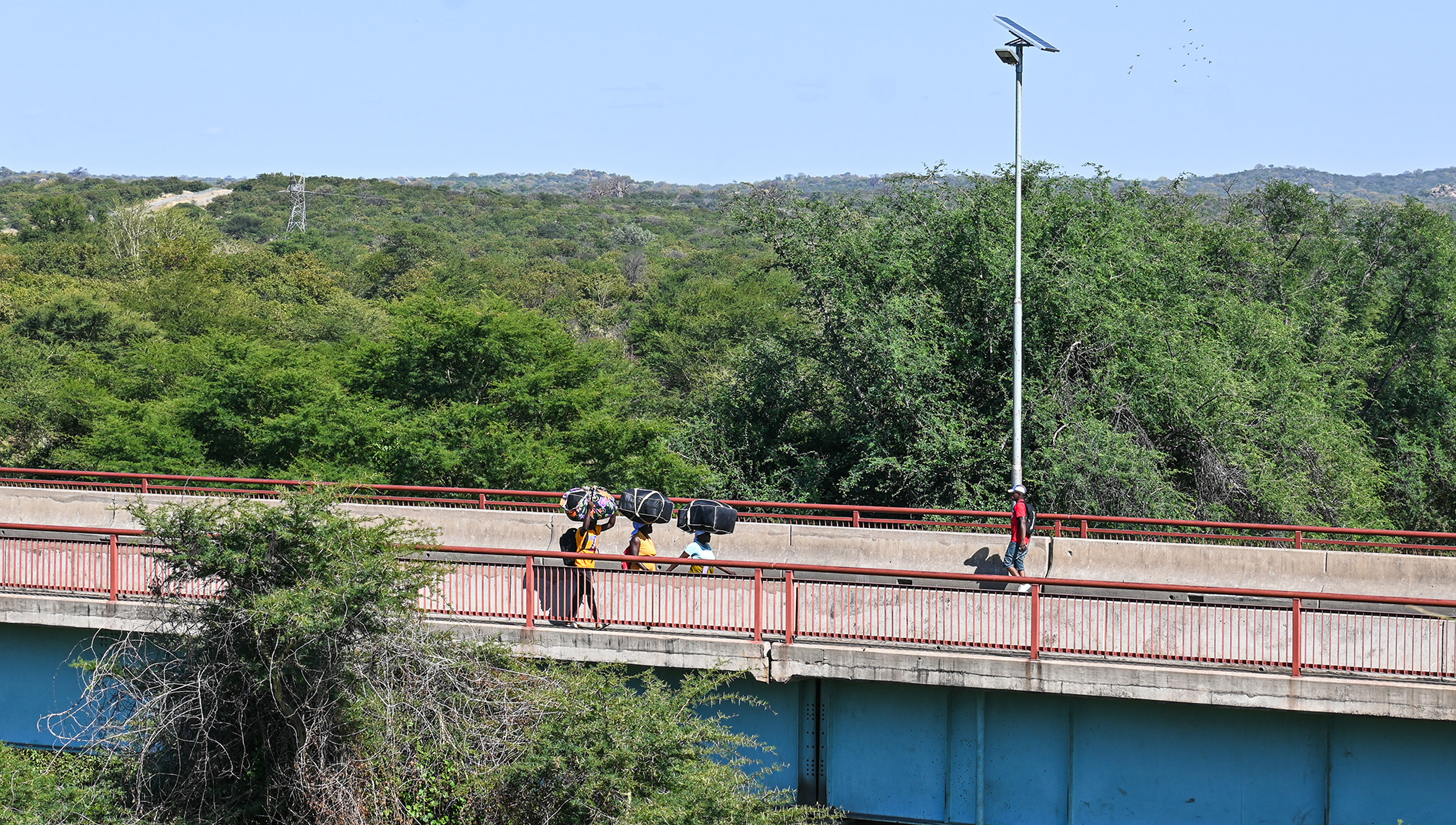UNLOCKING RIGHTS OP-ED
Why SADC countries should protect women cross-border traders

We must recognise the vital importance of these women entrepreneurs whose role in the informal cross-border trade contributes so much to the economies of their countries.
For decades informal cross-border trade has been a cornerstone of African economies. It is an occupation dominated by resilient and resourceful women like Chenai Moyo*, who typically use their earnings to pay school fees for their children, buy extras for themselves or necessities such as medicine for their families. The income also provides greater financial freedom and autonomy within their marriages.
Alternative livelihoods can be limited for women in southern Africa. After losing her parents and being forced out of her childhood home with her siblings, Chenai had to take on the responsibility of providing for them. She put her dreams of becoming a lawyer on hold and took a job as a domestic worker, but the meagre income proved insufficient.
Determined to secure a better future for her family, Chenai decided to venture into cross-border trade. Like many others in her position, she faced misconceptions and prejudice from local residents, who saw her as a threat to their jobs.
Numerous studies have demonstrated the significant role informal cross-border trade plays in reducing poverty and food insecurity for millions of households that are excluded from formal employment opportunities. Yet women traders like Chenai continue to face a host of challenges, including gender-based violence, administrative harassment, corruption and excessive taxation.
Read more in Daily Maverick: Informal sector entrepreneurship is the silver bullet to address poverty and unemployment
This month marks two decades since the adoption of the Maputo Protocol, arguably the most progressive instrument on women’s rights in international law. Adopted by the African Union (AU) on 11 July 2003, the protocol seeks to guarantee the empowerment of women in southern Africa by upholding their rights to inheritance, economic and social welfare, education and training and equal protection before the law, among others. Despite some progress, many challenges persist in realising the rights enshrined in this treaty.

Women cross-border traders carry goods at the Beitbridge Border Crossing. The crossing is known for being unsafe for women traders. (Photo: Amnesty International)
As we reflect on the protocol’s 20th anniversary, we also turn our attention this year to the implementation of the African Continental Free Trade Area (AfCFTA), and the AU’s theme for 2023, “Acceleration of AfCFTA Implementation”. The largest free trade agreement in African history, the AfCFTA marks an important milestone in unlocking intra-regional trade as the continent moves to eliminate trade barriers to the movement of persons, capital and investment.
To truly benefit from this transformative agreement, it is vital that the rights and needs of women, including those engaged in informal cross-border trade, are recognised and addressed. In doing so, we not only empower these traders but also foster inclusive growth and sustainable development across the continent.
It is difficult to pin down the true volume of informal cross-border trade in Africa with any accuracy, because of its informality. However, according to the African Export-Import Bank’s 2020 trade report, the sector accounts for 30% to 40% of all intra-regional trade in southern Africa and as much as 40% to 80% of total trade between countries in east and west Africa, making it significant.
Call for action
To help Chenai and millions of women traders like her, Amnesty International is calling on governments to prioritise gender-responsive policies that would ensure legal recognition where appropriate and protection for these traders. By addressing barriers such as excessive taxation and corruption, and improving cross-border infrastructure and logistics, we can facilitate their trading activities and enhance their growth. Access to finance and credit is also critical for enabling these women and their businesses to flourish.
Read more in Daily Maverick: eThekwini continues to deny informal traders full trading rights despite high court ruling
It is also paramount to address the security concerns of women cross-border traders, who often risk theft, harassment and violence during their long journeys by bus or shared taxi to distant markets. They must have access to safe trading zones and support mechanisms for reporting and addressing security incidents they encounter. By prioritising the security of women traders, we create an environment that encourages their participation and empowers them to engage in trade without fear or intimidation.
As we celebrate the 20th anniversary of the Maputo Protocol and strive for the accelerated implementation of AfCFTA, we must recognise the vital importance of these women entrepreneurs whose role in the informal cross-border trade contributes so much to the economies of their countries.
To create a future where these traders thrive, and their rights are protected, we must work together, in the spirit of human rights and economic and developmental justice for all. DM
* Pseudonym used to protect the privacy of the rights holder.
Mandipa Machacha and Sasha Middleton work at Amnesty International Southern Africa Regional Office.


















Comments - Please login in order to comment.